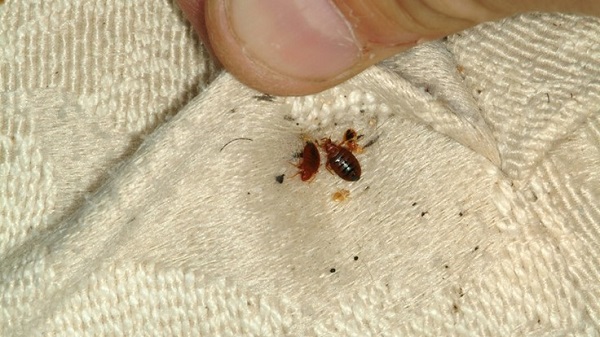Efficient Bug Control Measures to Protect Your Garden and Plants
In the world of gardening, the consistency of a well-tended yard can typically be disrupted by unwanted parasites that intimidate the health and wellness and vigor of plants. Carrying out effective bug control gauges not just safeguards the yard's aesthetic allure but also plays a pivotal function in maintaining the plants' well-being.
All-natural Pest Repellents

An additional reliable all-natural insect repellent is diatomaceous earth, a grainy compound made from fossilized water organisms. Diatomaceous earth works by physically harming insects with its unpleasant appearance, making it an outstanding choice for managing insects like slugs, beetles, and caterpillars. Furthermore, planting friend plants like marigolds, lavender, or basil can help fend off pests due to their strong scents or all-natural chemical substances.
Beneficial Pest for Insect Control

An additional helpful bug is the parasitical wasp, which lays its eggs inside bug bugs, eventually eliminating them. Ground beetles are excellent for regulating caterpillars, snails, and slugs. Hoverflies, frequently incorrect for bees as a result of their similar look, prey on aphids, thrips, and caterpillars.
To attract helpful pests to your yard, you can plant a diverse series of blooming plants, such as dill, fennel, and yarrow, which offer nectar and pollen for grown-up pests. Additionally, avoid utilizing broad-spectrum chemicals that can damage both dangerous and beneficial insects. By creating a welcoming setting for these advantageous bugs, you can lower the demand for chemical pesticides and promote a healthier, extra balanced garden environment.
Friend Planting Methods
When intending to boost the effectiveness of advantageous insects in your yard for all-natural parasite control, considering companion planting techniques can better optimize the ecosystem balance. Companion planting includes tactically placing specific plants next to each this other to maximize their shared advantages, such as discouraging bugs, drawing in valuable insects, or enhancing nutrition uptake - bed bug exterminator houston near me. One prominent instance is planting marigolds together with tomatoes to push back nematodes and various other dangerous pests while also attracting pollinators
Planting trap plants like nasturtiums can divert parasites away from your major plants, serving as sacrificial plants that shield your important fruit and vegetables. By applying buddy growing strategies, you can produce a varied and unified yard environment that normally controls parasites while promoting plant wellness and efficiency.
DIY Bug Control Solutions
To efficiently take care of pests in your garden, implementing do-it-yourself parasite control solutions can be a cost-efficient and eco-friendly technique. One usual DIY bug control remedy is creating homemade insecticidal soaps by blending light soap with water to control soft-bodied bugs like aphids, termites, and whiteflies. In addition, introducing useful pests such as ladybugs, lacewings, and predatory wasps can assist normally control bug populations in your yard. Establishing physical barriers like row covers or netting can likewise protect against pests like caterpillars from damaging your plants.
Buddy planting particular herbs and flowers like marigolds, basil, and lavender find out this here can assist drive away bugs and draw in advantageous pests. By continue reading this integrating these DIY bug control services into your horticulture routine, you can protect your yard and plants without relying on rough chemicals.
Environmentally-Friendly Pesticides

Another effective choice is diatomaceous earth, a natural substance made from fossilized marine microorganisms, which can be sprayed around plants to regulate slugs, snails, and various other crawling insects. In addition, insecticidal soaps and oils stemmed from plant-based resources are beneficial for regulating soft-bodied bugs like aphids, mites, and whiteflies.
Conclusion
To conclude, efficient insect control actions such as all-natural repellents, helpful bugs, companion growing techniques, DIY solutions, and environmentally-friendly chemicals are vital for safeguarding your yard and plants. By implementing these methods, you can prevent damages triggered by pests and preserve a healthy and thriving yard environment. It is very important to take into consideration the long-lasting impact of utilizing pesticides and go with more lasting and green options to make certain the wellness and health of your plants and the setting.